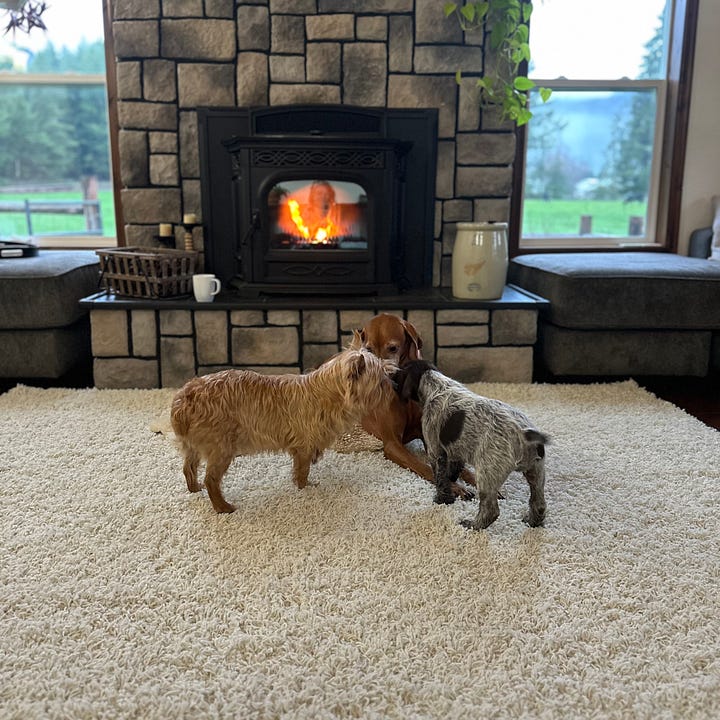How the animals teach us to love and lose
An essay on puppies, chicks, and The Book of the Dunn Cow, at Cultivating Oaks Press
Below is an excerpt from my quarterly essay for Cultivating, about hope and how the animals of great literature can teach us to grieve. Our theme this quarter is Hope, and if you need some, Cultivating is stuffed full of wonderful essays to encourage you.
To love something is to risk the terrible gutting that comes when you lose it. It’s to be vulnerable, a word which comes directly from the Latin for “wound”. Vulnerability is to go to battle without a shield, jump without a parachute, fully love someone without any thought of holding back—a full-send on all your hopes and dreams and emotions. We are made for this kind of abandon, but we sometimes use it to go headlong towards a fleeting thing.
The first time I realized this fact of life was in my late thirties. It was losing our son’s dog that laid me in bed with sobs of grief. I had lost several dogs in my life up to that point, from my childhood pets, to the Jack Russell Terrier I just had to have when the kids were little. But there was something about losing Lacy, a bouncy mound of Old English Sheepdog and Labrador, that did me in.
The new puppy I mentioned in the full essay has now arrived, and our son brought him over for a visit.
You want puppy pictures, right?
Because you are not monsters?


Chris Wheeler wrote an excellent essay last week to introduce a new series on his Substack, on The Wind in the Willows. He writes about animals and literature and loss, and how these stories help us “escape from despair into hope”. Highly recommended. Without being too self-deprecating, he delves much deeper than I do into our connection to the animals of literature, and our own pets. And he blasts Where the Red Fern grows, so there is that.
To love anything is a great risk we take over and over. Even to wake up each day, to repeat the living we did the day before, to be in pain and filled with joy and exposed to disappointments, is to love life and risk hope.

Thanks for the essay link. Love how you connected all this to The Book of the Dun Cow, which I read last year. And, of course, to the Psalms. Always, Psalms.